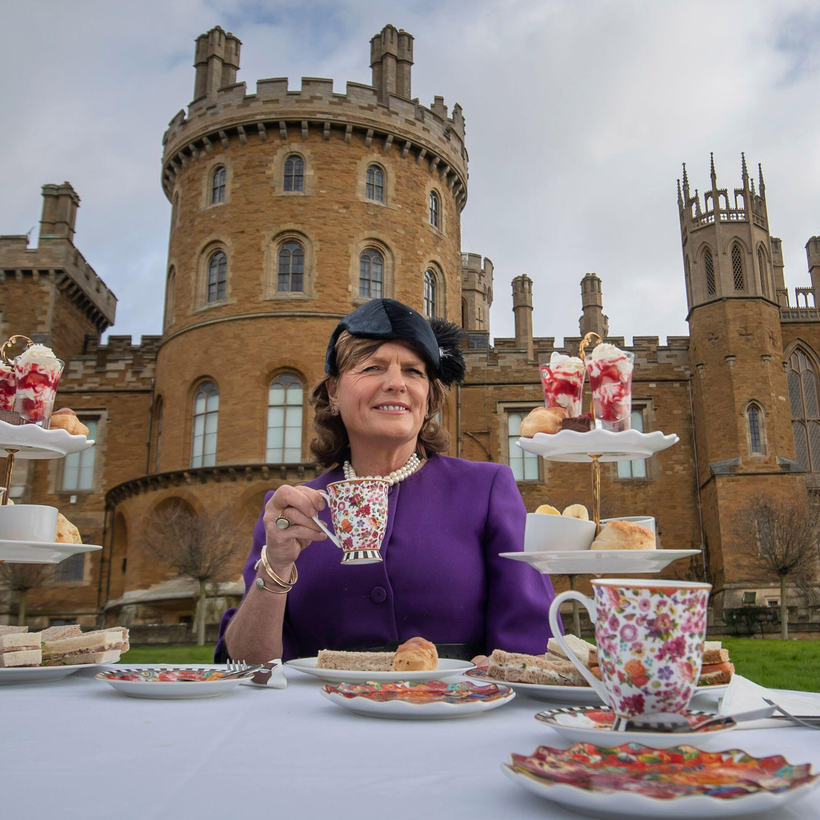“There is no school for duchesses,” Emma Manners, the Duchess of Rutland, tells me. “No degree. No course. No qualification.” But her new podcast, Duchess—a series of conversations with the women behind Britain’s grandest estates—contains some valuable lessons, should any listeners be considering a strategic marriage or a misguided real-estate purchase.
The first thing is to get the roof in check. (“If you don’t fix that, what’s the point in even decorating the rooms?” the duchess says.) The second is to know who’s boss. (“These places are so enormous that they’ll swallow you up.”) And the third is to get rid of the ghosts. (Unless you’re the Honorable Demetra Lindsay of Hedingham Castle, who’d rather hang on to hers. “They just create this lovely warm atmosphere,” she says in Episode Four.) “Ours were really affecting the children,” the duchess says. “And we couldn’t have that.”


